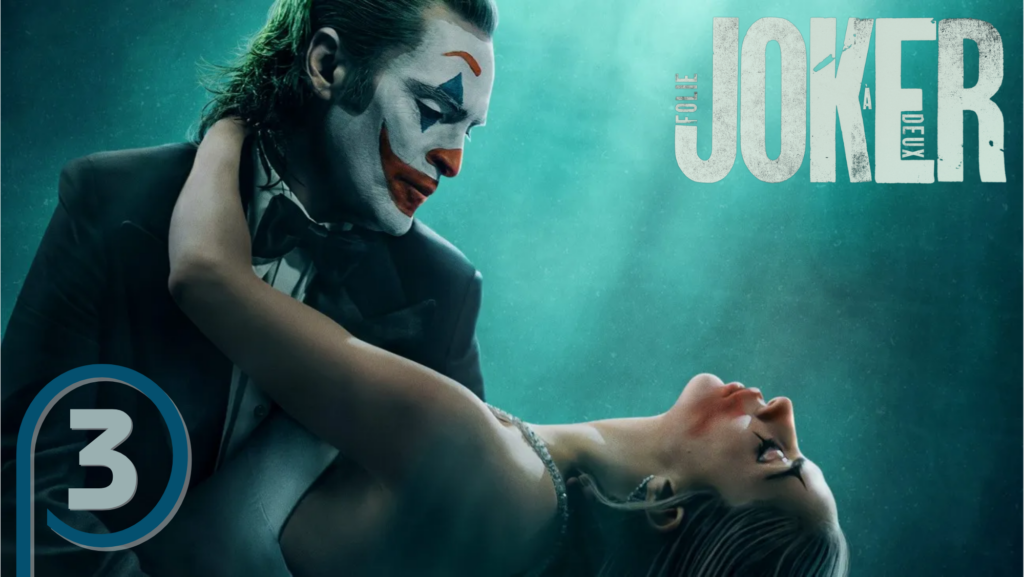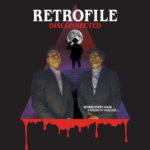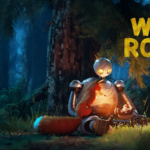In the end, Joker: Folie à Deux is a massive disappointment. It had all the elements in place to succeed: a fantastic cast, an intriguing premise, and the legacy of a great first film. But what we got was a muddled experience that failed to capitalize on any of its potential.
Joker: Folie à Deux was one of the most anticipated releases of the year, following in the footsteps of the acclaimed Joker (2019). The first film was a deep character study of Arthur Fleck, a man broken by society, whose descent into madness led him to becoming Gotham’s infamous Clown Prince of Crime. With this foundation, Folie à Deux sought to delve further into Arthur’s fractured psyche, exploring the consequences of his actions. The storyline was set up to be a continuation, this time focusing on the aftermath of Arthur’s public breakdown, with the looming spectacle of a high-profile court case. The potential was all there for a gripping psychological drama, but unfortunately, the film takes a drastically different approach.
Let’s start with what worked. Visually, the film is stunning. The cinematography is a high point, with beautifully framed shots that enhance the atmosphere of Gotham, and a grim but often surreal view of Arthur’s world. The camera work and angles are expertly done, giving the film a striking, artistic quality. Joaquin Phoenix, once again, embodies Arthur with chilling brilliance. His portrayal remains deeply immersive, delivering a performance that is compelling, even if the film itself doesn’t serve him as well as it could have. Zazie Beetz returns in a smaller but impactful role, reprising her character from the first film, while other supporting characters, including the prison guards and witnesses, provide solid performances.
However, this is where my enjoyment of the film ends. From the outset, Folie à Deux had the foundation to be a gripping psychological drama, but instead, it veers into unexpected—and unwelcome—territory. The decision to make Joker: Folie à Deux a partial musical is baffling. While I can understand the surreal, fantasy direction they were aiming for, it simply doesn’t work. A film like this didn’t need 30 to 45 minutes of Joaquin Phoenix half-speaking and half-singing through his scenes. It felt like the filmmakers took Arthur’s impromptu dance from the first film and stretched it into an entire filmic style, reducing a complex character to little more than a series of disjointed musical interludes. To add salt to the wound, they even recycle the bathroom scene from the first film, as if reminding the audience of what worked then, and showing how much less effective it is now.
The biggest issue, though, is the story—or lack thereof. With so many directions the film could have taken—particularly with Arthur now facing the fallout from his prior actions—it’s frustrating to see how little progress is actually made. The film starts with Arthur in custody, facing trial, but by the end, we are essentially back where we started. The court case, which could have added a dynamic layer of intrigue and drama, is instead treated as a backdrop to a narrative that meanders aimlessly. Even Lady Gaga’s character, Harleen Quinzel (the eventual Harley Quinn), lacks cohesion, feeling more like an erratic addition to the film rather than a fully developed counterpart to Arthur.
In the end, Joker: Folie à Deux is a massive disappointment. It had all the elements in place to succeed: a fantastic cast, an intriguing premise, and the legacy of a great first film. But what we got was a muddled experience that failed to capitalize on any of its potential. The film’s twist, while somewhat clever, is easily telegraphed if you’re paying attention, but even that can’t salvage the film’s lack of progression. I give this movie a 3/10. It could have been so much more but ultimately missed the mark. If you do decide to watch it, I recommend a premium theater for comfort—both on and off the screen—or perhaps wait until it’s available to stream so you can endure it at your own pace.



